BROWNSWORD, Neil (2017) FACTORY. [Show/Exhibition]
![[thumbnail of FACTORY with Rita Floyd, image courtesy of Korea Ceramic Foundation]](https://eprints.staffs.ac.uk/5303/1.hassmallThumbnailVersion/1.%20Neil%20Brownsword%2C%20Factory%20with%20Rita%20Floyd%202017%20.jpg)
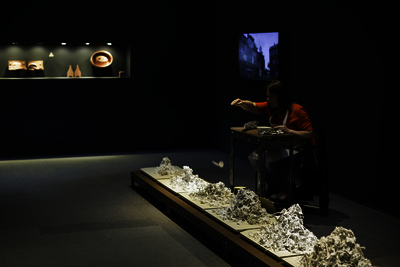
1. Neil Brownsword, Factory with Rita Floyd 2017 .jpg - Supplemental Material
Available under License Type All Rights Reserved.
Download (12MB) | Preview
![[thumbnail of FACTORY with Rita Floyd, image courtesy of Korea Ceramic Foundation]](https://eprints.staffs.ac.uk/5303/2.hassmallThumbnailVersion/2.%20Neil%20Brownsword%2C%20Factory%20%202017%20.jpg)
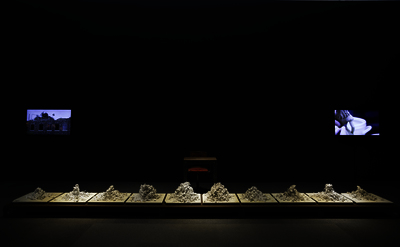
2. Neil Brownsword, Factory 2017 .jpg - Supplemental Material
Available under License Type All Rights Reserved.
Download (9MB) | Preview
![[thumbnail of FACTORY with Rita Floyd and Sinhyun Cho, image courtesy of Korea Ceramic Foundation]](https://eprints.staffs.ac.uk/5303/11.hassmallThumbnailVersion/3.%20Neil%20Brownsword%2C%20Factory%20with%20Rita%20Floyd%20and%20Sinhyun%20Cho%202017%20.jpg)
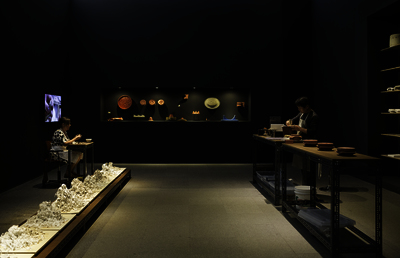
3. Neil Brownsword, Factory with Rita Floyd and Sinhyun Cho 2017 .jpg - Supplemental Material
Available under License Type All Rights Reserved.
Download (13MB) | Preview
![[thumbnail of FACTORY, post-industrial discard, image courtesy of Korea Ceramic Foundation]](https://eprints.staffs.ac.uk/5303/3.hassmallThumbnailVersion/4.%20Neil%20Brownsword%2C%20Factory%20post-industrial%20discard%202017%20.jpg)
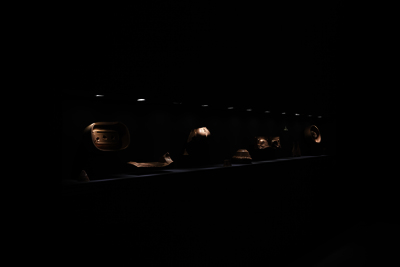
4. Neil Brownsword, Factory post-industrial discard 2017 .jpg - Supplemental Material
Available under License Type All Rights Reserved.
Download (12MB) | Preview
![[thumbnail of 5. Neil Brownsword, Factory, Post-industrial discard. 2017]](https://eprints.staffs.ac.uk/5303/4.hassmallThumbnailVersion/5.%20Neil%20Brownsword%2C%20Factory%20post-industrial%20discard%2C%202017%20.jpg)
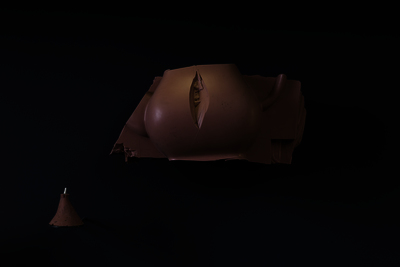
5. Neil Brownsword, Factory post-industrial discard, 2017 .jpg - Supplemental Material
Available under License Type All Rights Reserved.
Download (12MB) | Preview
![[thumbnail of FACTORY with James Adams, image courtesy of Korea Ceramic Foundation]](https://eprints.staffs.ac.uk/5303/5.hassmallThumbnailVersion/6.%20Neil%20Brownsword%2C%20Factory%20with%20James%20Adams%202017%20.jpg)
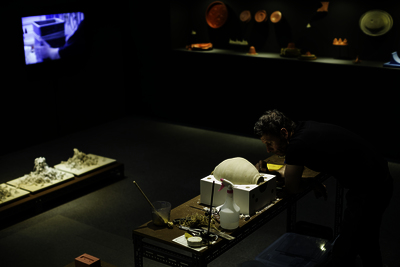
6. Neil Brownsword, Factory with James Adams 2017 .jpg - Supplemental Material
Available under License Type All Rights Reserved.
Download (13MB) | Preview
![[thumbnail of FACTORY with James Adams, image courtesy of Korea Ceramic Foundation]](https://eprints.staffs.ac.uk/5303/6.hassmallThumbnailVersion/7.%20Neil%20Brownsword%2C%20Factory%20with%20James%20Adams%202017%20.jpg)
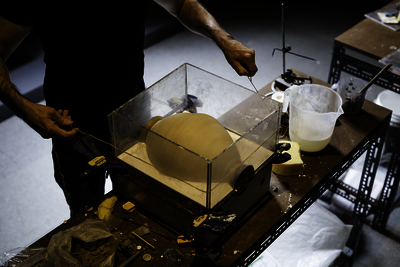
7. Neil Brownsword, Factory with James Adams 2017 .jpg - Supplemental Material
Available under License Type All Rights Reserved.
Download (14MB) | Preview
![[thumbnail of FACTORY with James Adams and Neil Brownsword, image courtesy of Korea Ceramic Foundation]](https://eprints.staffs.ac.uk/5303/7.hassmallThumbnailVersion/8.%20Neil%20Brownsword%2C%20Factory%20with%20James%20Adams%20and%20Neil%20Brownsword%202017%20.jpg)
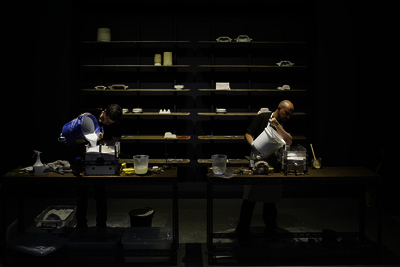
8. Neil Brownsword, Factory with James Adams and Neil Brownsword 2017 .jpg - Supplemental Material
Available under License Type All Rights Reserved.
Download (13MB) | Preview
![[thumbnail of FACTORY with Yongjun Cho, image courtesy of Korea Ceramic Foundation]](https://eprints.staffs.ac.uk/5303/8.hassmallThumbnailVersion/9.%20Neil%20Brownsword%2C%20Factory%20with%20Yongjun%20Cho%202017%20.jpg)
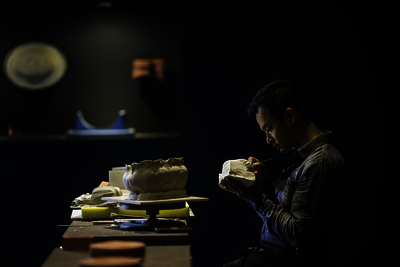
9. Neil Brownsword, Factory with Yongjun Cho 2017 .jpg - Supplemental Material
Available under License Type All Rights Reserved.
Download (16MB) | Preview
![[thumbnail of FACTORY with Wongjeong Lee, image courtesy of Korea Ceramic Foundation]](https://eprints.staffs.ac.uk/5303/9.hassmallThumbnailVersion/10.%20Neil%20Brownsword%2C%20Factory%20with%20Wongjeong%20Lee%202017%20..jpg)
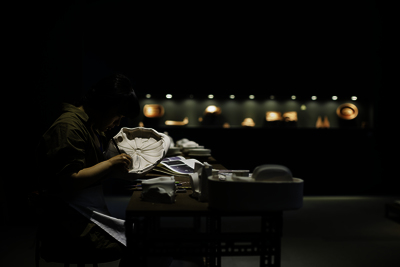
10. Neil Brownsword, Factory with Wongjeong Lee 2017 ..jpg - Supplemental Material
Available under License Type All Rights Reserved.
Download (11MB) | Preview
![[thumbnail of 11. Neil Brownsword, Factory with Wongjeong Lee 2017]](https://eprints.staffs.ac.uk/5303/10.hassmallThumbnailVersion/11.%20Neil%20Brownsword%2C%20Factory%20with%20Wongjeong%20Lee%202017%20.jpg)
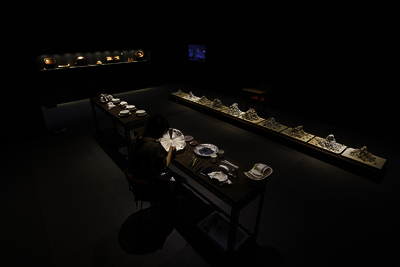
11. Neil Brownsword, Factory with Wongjeong Lee 2017 .jpg - Supplemental Material
Available under License Type All Rights Reserved.
Download (13MB) | Preview
neil_brownsword-pren-compressed.pdf - Supplemental Material
Available under License Type All Rights Reserved.
Download (2MB) | Preview
Abstract or description
Awarded as part of his Grand Prize at the 2015 GICB, this solo exhibition consolidated much of Brownsword’s research into North Staffordshire’s ceramic intangible heritage, on a prestigious international platform. It involved six performances by ex-industry artisans and Korean master potters, whose indigenous ceramic practices were choreographed by Brownsword to disrupt the routines of prescriptive skill and reactivate artefacts salvaged from Stoke-on-Trent’s post-industrial legacy. Two looped films (2016) that document this period of industrial change, juxtaposed demonstrations of ceramic ‘know-how’ against a survey of former sites of production. Films were silent in the exhibition - to access:
Six Towns part 1
https://www.youtube.com/watch?v=OUNTPVRxLic&feature=youtu.be
Six Towns part 2
https://www.youtube.com/watch?v=YBD6Gs3eqxk&feature=youtu.be
As South Korea formally recognises UNESCO’s convention to safeguard Intangible Cultural Heritage (unlike the UK), FACTORY explored the integration of opposing hierarchies of cultural production to re-negotiate a sense of value to people and practices displaced by global economics. Knowledge exchange between these two distinct traditions offered new insights into the reciprocal phenomenon of cultural transfer between East and West prevalent in ceramic history. By ‘instilling inquiry with ethical sensitivity’ through his innovative methods of reinvigorating obsolescence, Brownsword’s factory of ‘knowledge production, tactile pleasure and non-commercialised materials lay counter to the rampant exploitation of most artists and factories’ (Shales).
Visitor numbers to Icheon World Ceramic Centre, where FACTORY was staged, were approx. 125,764. Korea Ceramic Foundation (KOCEF) disseminated FACTORY through a broad range of materials printed in Korean and English, including a publication by esteemed scholars (Strangleman and Shales) which offered critical discourse of the research journey.
| Item Type: | Show/Exhibition |
|---|---|
| Additional Information: | From exhibition catalogue: Brownsword, N., Shales, E., Strangleman, T., FACTORY, Neil Brownsword, Icheon World Ceramic Centre, 2017. p.6 FACTORY is a performative installation that reflects upon notions of place, skill, people and material objects left behind following the process of industrial change. In Stoke-on-Trent, global outsourcing together with high yield production technologies, have substituted many of the people embodied skills that once sustained company leadership. Like many hand skills in the ceramic industry, dexterity is transmitted from generation to generation. As the tertiary or service sector has largely replaced traditional manufacturing, there now exists a significant skills gap, and with few apprenticeships a danger of specialist knowledge disappearing. Following the legacy of William Morris and the Arts and Craft Movement in the nineteenth and early twentieth centuries, much attention has been paid to the preservation of vernacular crafts. Since these neo-traditionalists remained diametrically opposed to industrialisation, they also marginalised the know-how of those employed in factories, albeit sometimes unintentionally. In 2003 UNESCO implemented a convention to safeguard intangible cultural heritage. 171 countries have now endorsed this convention, effectively making Intangible Heritage part of their cultural policy, but this value system remains alien to the UK. ‘Any efforts to safeguard traditional craftsmanship must focus not on preserving craft objects - no matter how beautiful, precious, rare or important they might be - but on creating conditions that will encourage artisans to continue to produce crafts of all kinds, and to transmit their skills and knowledge to others’. 1 FACTORY re-evaluates explicit systems of know-how, specific to North Staffordshire’s ceramic industry. Within the exhibition, china flower maker Rita Floyd and mould-maker James Adams, two artisans with long careers working and residing in Stoke-on-Trent, restage their former practices. By bringing contrasting modes of ceramic manufacture into the gallery space, the live transmission of these actions enables rare access to haptic and material knowledge. They will work, and not be celebrated as nostalgic demonstrators of pure skill constructed for heritage tourism. To accentuate these overlooked forms of intelligence, Neil Brownsword adopts numerous strategies that disrupt prescriptive routines of skill cultivated by instruction. Insights that stem from his own employment history at the Wedgwood factory, inform the re-choreography of these complex rules to expose tacit procedures that include nuances of preparation and quality control. As an act of regeneration, post-industrial discard is reactivated by Brownsword via various modes of improvisation. These gestures are reconfigured further through collaborations with Korean artisans, who impart know-how from their own rich ceramic heritage. This collision of two very distinct traditions as a means of reinvigorating obsolescence, extends the cultural borrowing and cycles of knowledge exchange prevalent throughout ceramic history. Korea continues to give status to individuals with exceptional cultural ability to preserve and cultivate living heritage – FACTORY attempts to question the value and relevance of embodied practices that remain marginalised in the very nation where the industrial revolution began. 1. UNESCO and Intangible Cultural Heritage, Heritage Crafts Association, http://heritagecrafts.org.uk/index.php/heritagecrafts/intangible-cultural-heritage accessed 9.01.2017 |
| Faculty: | School of Creative Arts and Engineering > Art and Design |
| Event Title: | FACTORY |
| Event Location: | Icheon World Ceramic Center, Gyeongchungdae-ro 2697 beon-gil, Icheon-si, Gyeonggi-do, 17379, Rep. of Korea |
| Event Dates: | 22 April - 28 May 2017 |
| Depositing User: | Neil BROWNSWORD |
| Date Deposited: | 04 Jun 2019 09:49 |
| Last Modified: | 24 Feb 2023 03:49 |
| Related URLs: | |
| URI: | https://eprints.staffs.ac.uk/id/eprint/5303 |

 Tools
Tools Tools
Tools